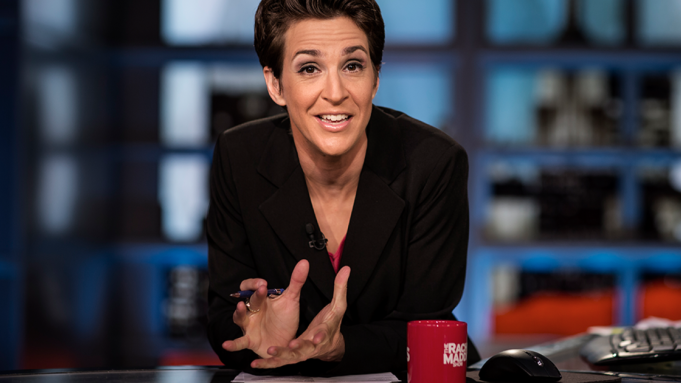
As one who identifies with the center-left, it is not surprising that I have long been a regular viewer of Rachel Maddow. I record her show every evening and typically watch it (sans commercials) after my wife has headed to bed. There is a lot to appreciate about her programs:
I like the attention she gives to local reporting, such as her COVID-19 coverage of meatpacking plants in small rural communities.
I like the intense focus she gives to issues that may only receive brief attention in the regular news media – such as the water poisoning in Flint, Michigan.
I like the research and creativity reflected in many of her lengthy reports, like her superb podcast on the prosecution of Vice President Agnew.
So, you may rightly ask what Maddow has done that caused me to place her in a “timeout.” I have not watched her program since last Wednesday, the day the House voted to impeach the president for the second time.
As part of Maddow’s lengthy discussion of this historic House vote, she played an extensive clip of Trump’s remarks to his “Stop the Steal” crowd on the Ellipse. I was glad to watch this clip because, at that point, I had heard only a few sentences of his remarks, namely those focusing on his words encouraging his followers to march to the Capitol and his assurance (false as it turned out) that he would be right there with them. As I listened to the lengthy excerpt of Trump’s hour-long speech, I grew even more convinced of his culpability for what happened at the Capitol. The speech repeated hyperbolic claims of election fraud that have been refuted in dozens of court cases. Moreover, the speech explicitly challenged the electoral college vote, which at that very moment was being ceremonially tabulated by a joint session of Congress. Then, Trump challenged his audience to march to the Capitol to stop this tabulation from going forward.
So, what was so wrong with Maddow’s report? As I listened to the balance of her reporting, it occurred to me that the Trump speech excerpt omitted something that I had heard in earlier reporting: Trump indicating that the march should be peaceful.
Boom Video proves President Trump called on people to “PEACEFULLY & PATRIOTICALLY march to the Capital”
Case closed. Pass it on #TrumpInsurrection #60Minutes pic.twitter.com/LEUdjguOJc
— Melissa Tate text MAGA to 31996 (@TheRightMelissa) January 11, 2021
After the show concluded, I went online and listened to the speech and, sure enough, heard this sentence: “I know that everyone here will be marching over to the Capitol building to peacefully and patriotically make your voices heard.”
I do not for an instant believe that this sentence exculpates Trump of responsibility for what happened at the Capitol last Wednesday. Indeed, listening to the lies and incitement made me even more convinced that a second impeachment was warranted.
What so bothered me is that Maddow thought it appropriate to consciously omit the sentence that FOX News commentators and Trump defenders will undoubtedly use to defend him in his impeachment trial. Jonathan Turley has already cited these words as precluding any impeachment conviction for incitement. We will hear these words hundreds of times before this ordeal is over. How could Maddow withhold them from her audience?
The larger problem is that rather than including this sentence in her reporting, placing it in context, and responding to it, Maddow chose to pretend that the sentence was never uttered. This is why I have placed her in “timeout.” Maddow should have clearly articulated why this sentence is not a “get out of jail free card.” Her poor editorial decision epitomizes our media world where we live in separate universes and choose to see only what supports our respective positions.
Unfortunately, it is not sufficient to simply look to multiple sources for news because each side does not address the concerns or views of the other. Each side simply presents their own facts and narratives.
I have a modest suggestion for Rachel Maddow: Devote 20 minutes of every hour to reporting on and addressing the “alternative” facts and narratives being aired by other media. It is not acceptable to simply pretend that other facts and narratives are not competing for our trust and attention.
______________________________________________________________________________________________________________________






